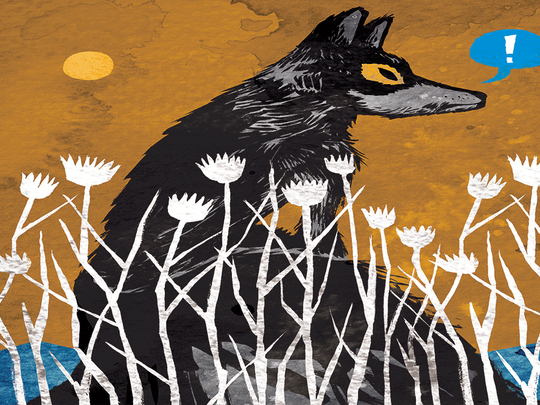
Etta and Otto and Russell and James
By Emma Hooper, Simon & Schuster, 320 pages, $26
The Canadian writer Emma Hooper’s much-anticipated debut novel begins when Etta, an 82-year-old farmer’s wife from the plains of Saskatchewan, walks out on her life. She leaves a note for her husband Otto explaining that, “I’ve never seen the water, so I’ve gone there. Don’t worry, I’ve left you the truck. I can walk. I will try to remember to come back.”
The water she’s aiming for, as Otto traces it on his globe, is Canada’s eastern coast, 3,232km away.
“Etta and Otto and Russell and James” was fought over by five publishers and eventually sold for a reported six-figure sum. The excitement comes from its (now highly bankable) quirky, offbeat charm: this is the latest in a rapidly emerging genre that might be termed “elderly-escaper-lit”.
First there was Allan Karlsson, who runs away from an old people’s home into a world of criminal adventure in Jonas Jonasson’s word-of-mouth hit “The Hundred-Year-Old Man Who Climbed Out of the Window and Disappeared” (2009). Then came Rachel Joyce’s “The Unlikely Pilgrimage of Harold Fry” (2012), in which an elderly man sets off to post a letter to a former colleague and ends up walking to the other end of England to deliver it in person.
Etta’s journey across Canada is shared by James, a talking coyote (there are also talking fish skulls, which communicate in French). The progress of her otherwise quite solitary journey is followed closely by Otto, the entire Canadian media and by Russell, the couple’s friend and neighbour.
Russell, who usually spends his days watching for deer, uses his skills to track Etta until they finally meet, briefly, then part: “And I’ll meet you back home, after,” both say.
It’s a statement of hope over expectation. Both are in their eighties, and Russell heads off north to follow the migrating caribou.
There’s a deeply restrained Canadian heartbreak at the centre of the story: Otto and Russell, best friends and almost-brothers, were once pupils in Etta’s one-room school in Gopherlands (named for the burrowing rodents that plague its fields). Both love her but Otto goes to Europe to fight in the Second World War; Russell, with a maimed leg, is rejected by the military and stays on his farm.
He and Etta go dancing every night: “Everyone was exhausted from farm or factory work, circles under their eyes, calluses on their hands, but they still put on good shoes and pressed clothes and played and played and played and danced and danced and danced.”
Hooper is an academic and musician and there’s a fragmented, almost musical quality to her prose. (She has said that she likes writers who pay “attention to white space and repetition”.)
There are few temporal or territorial signposts; instead, Hooper develops a complex patchwork of past, present and magical realist dream states. Etta, it seems, is in the early stages of dementia, and as the story progresses, the past, the present and the never-happened emerge, converge and swirl around the solid, earthbound tale of her journey.
It comes as no surprise to learn that Hooper is a fan of Wes Anderson. Those who love the director’s stylised, whimsical filmmaking will probably love this book. Others may find it a bit contrived and twee. (Otto spends his time after Etta’s departure fashioning a menagerie of papier-mâché animals that go on to become a tourist attraction.)
Even those who don’t love Hooper’s style will have to concede that she offers a sweet, redemptive message here. Quests are generally reserved for heroic types: dashing knights, courageous hobbits. Now eightysomething Etta and her fictional counterparts are giving the myths a 21st-century twist. Modern life is full of people spouting rubbish about spurious emotional and spiritual “journeys”. Etta’s trek as she comes to the end of her life and reckons with the past, has, in contrast, a real and worthwhile dignity to it.
–Financial Times









